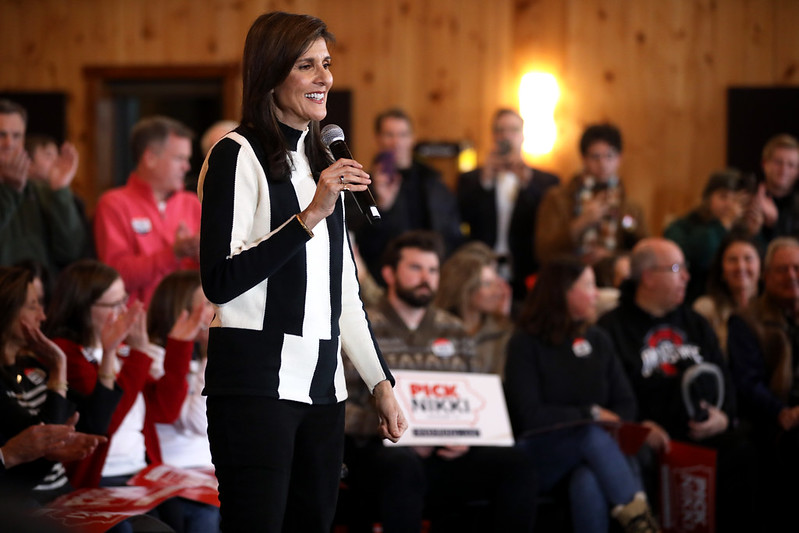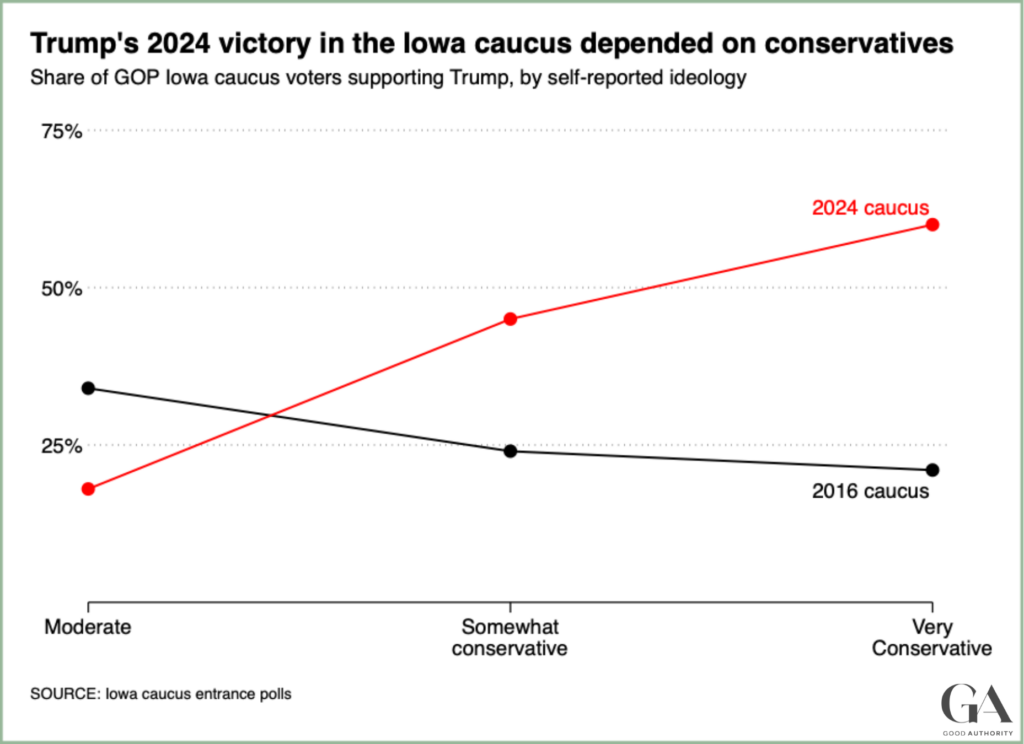
Back in June, I wrote about how Trump was polling so much better among Republicans who identify as “very conservative” than he did during the 2016 primaries. Trump lost the most conservative Republicans to Ted Cruz eight years ago. But early polling in 2023 showed that these same voters were now firmly behind Trump’s 2024 bid for the GOP nomination.
That pattern persisted throughout the remainder of 2023 and was prominently displayed in this week’s Iowa caucuses, as you can see below.

Drawing on entrance polls, the graph above shows that Trump actually performed worse among moderate Republican voters in his landslide 2024 Iowa victory than he did in 2016 when losing the Iowa caucuses to Cruz (18% to 34% respectively). But as you can see, he significantly improved his standing with conservative Republicans. Trump’s share of the “somewhat conservative” vote increased from 24% in 2016 to 45% in the 2024 caucuses. His support from “very conservative” caucus voters rose even more substantially from 21% eight years ago to 60% in Monday’s caucuses.
There are undoubtedly multiple reasons why the ideology of Trump’s base changed so dramatically from 2016 to 2024. But as I noted back in June, the biggest factor surely stems from the profound ways in which Trump’s presidency shifted the meaning of conservatism in U.S. politics.
Political scientists Dan Hopkins and Hans Noel have documented how Trump has come to define who and what Republican Party activists – that is, people who volunteer for political campaigns, donate money, work for politicians, etc. – think of as conservative. Their research in the American Political Science Review found that GOP activists viewed Trump critics like former senators Ben Sasse (R-Neb.) and Patrick Toomey (R-Pa.) as much less conservative than their voting records in Congress indicated. Conversely, GOP activists viewed Trump boosters as the most reliably conservative politicians.
Trump has also powerfully redefined what constitutes conservatism for rank-and-file Republican voters, according to my analyses of data from the Cooperative Election Survey (CES) – a massive academic survey administered by YouGov that asks over 50,000 respondents every two years to, among other things, rate politicians’ ideologies on a seven-point scale from “very liberal” to “very conservative.”
In June, I showed that Republicans nationwide now view Trump as more conservative than they did immediately before the 2016 general election. Meanwhile, Trump’s intraparty critics (e.g., Liz Cheney and Mitt Romney) were rated much less conservative by their GOP constituents after they backed his impeachment, as you can see in new nationwide data from political scientists Dan Hopkins and Hans Noel as well.
In fact, the seven Republican senators who voted to convict the former president during his second impeachment trial were all rated as much less conservative in October 2022 than we would otherwise expect from their Senate voting records, as measured by the first dimension of DW-NOMINATE. Even after we control for these ideological voting records, Republican CES respondents, on average, rated the seven GOP senators who convicted Trump a full category (i.e., “middle of the road” instead of “somewhat conservative” or “conservative” instead of “very conservative”) more liberal than the senators who acquitted him on the CES’s seven-point ideological scale.
It should come as no surprise, then, that Trump’s strong backing from the most conservative Republicans propelled him to a resounding victory on Monday night. After all, conservatism is becoming increasingly synonymous with Trumpism in the minds of GOP voters.



